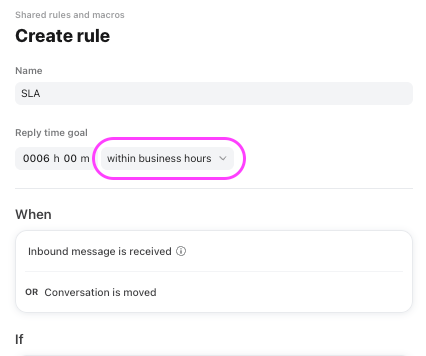New to Front and wondering if anyone has SLA tips and tricks for a team that covers all time zones in the US?
Login to the community
No account yet? Create an account
Use your Front credentials
Log in with Frontor
Enter your E-mail address. We'll send you an e-mail with instructions to reset your password.



